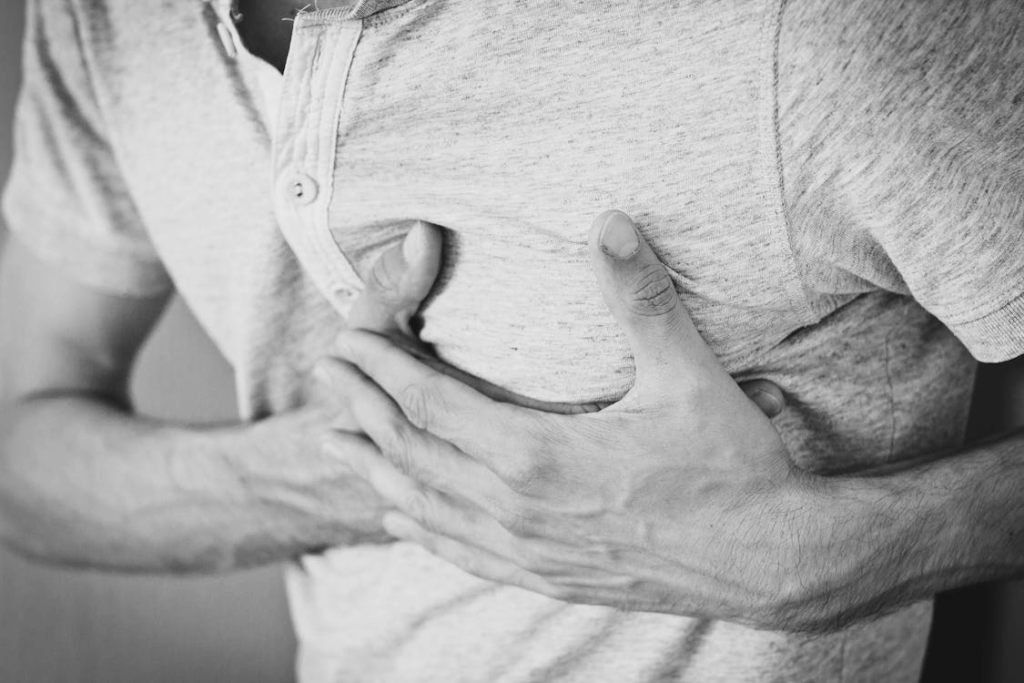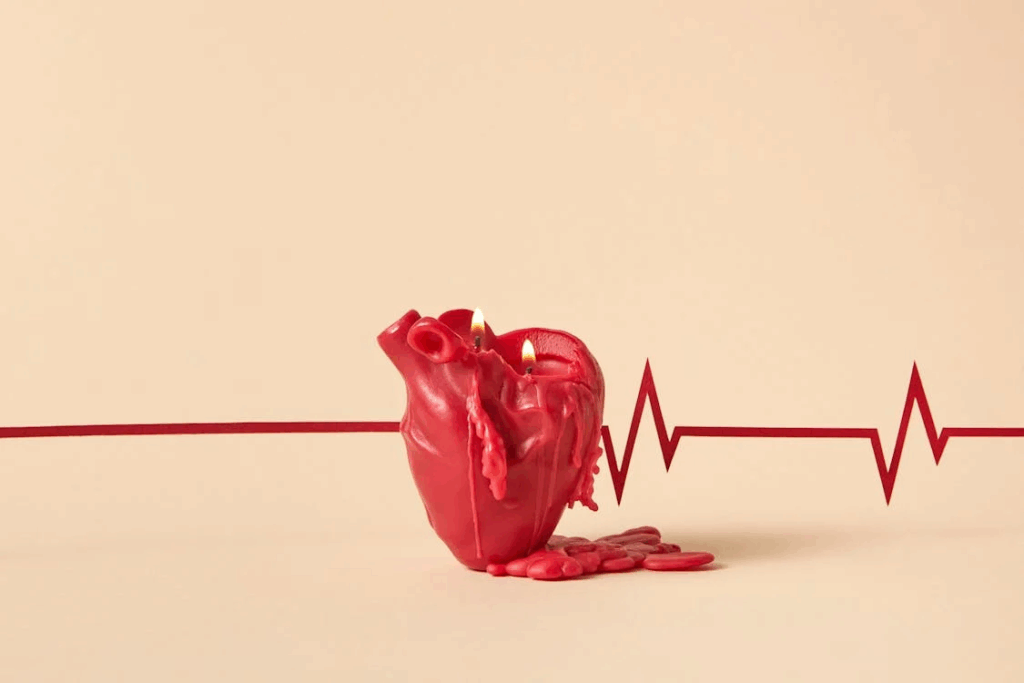With coronary heart disease (CHD) remaining the leading cause of death worldwide, it is surprising how often its onset and symptoms go unnoticed until catastrophe occurs. Many individuals with CHD may not experience any obvious symptoms in the early stages with some individuals showing signs just mere hours before onset.
The first sign of a problem is sometimes a heart attack, stroke, or even sudden cardiac death, as the underlying disease affecting the blood vessels can be asymptomatic for years. Symptoms such as chest pain, shortness of breath, or discomfort in the upper body may be mild, uncommon, or dismissed as indigestion or fatigue, leading to delayed diagnosis and treatment.
It has never been more important to learn to recognise early heart attack symptoms. It could potentially save your own life or the life of someone around here. With the pervasive nature of heart disease globally, identifying potential symptoms of a heart attack and regular check ups, especially in more at-risk populations, are a priority. Here are 7 early signs of heart trouble that could potentially spare you or your loved one from a heart attack.
1. Arm, jaw or back pain

One of the classic and well-known signs of heart trouble, the pain in the left arm is often described as pain that radiates from the chest to the left arm, neck, or even jaw. This occurs due to a phenomenon called referred pain, which happens because the nerves carrying pain signals from the heart and those from the left arm converge onto the same pathways in the spinal cord and brain.
As a result, the brain misinterprets the origin of the pain, perceiving it as coming from the arm rather than the heart itself. The pain is described as a constricting, squeezing, or cramp-like feeling and may be accompanied by other symptoms such as chest discomfort, shortness of breath, nausea, or sweating. Left arm pain, especially when sudden, severe, or combined with these other symptoms, is a strong indicator of a possible heart attack and should prompt immediate medical attention.
2. Chest discomfort

Chest discomfort is one of the most common, yet overlooked, signs of heart trouble. Many people mistake this symptom as resulting from indigestion or simply being unfit. Dr. Oliver Segal, consultant cardiologist and electrophysiologist at The Harley Street Clinic, characterizes chest discomfort as a dull ache rather than a sharp pain. Patients typically experience this pain in the center of the chest.
This discomfort often arises during physical activity and tends to disappear with rest. The pain may feel like pressure, fullness, or squeezing and can sometimes spread to the arms, neck, jaw, or back. People easily overlook these symptoms as signs of heart trouble because they can be subtle or mistaken for less serious conditions. However, any abnormalities experienced in the chest, especially when accompanied by symptoms such as shortness of breath, nausea, or sweating, warrants immediate medical attention.
3. Dizzy Spells

Dizzy spells are a common, often overlooked symptom that many people experience at some point in their lives. This usually occurs after standing up too quickly. However, as Dr. Oliver Segal, consultant cardiologist and electrophysiologist at The Harley Street Clinic, points out, these episodes can sometimes signal an underlying heart rhythm problem. Problems such as having an irregular heartbeat that is too slow or too fast.
While most dizzy spells are harmless, you should not ignore frequent or intense ones paired with chest pain, shortness of breath, or fainting. These symptoms warrant prompt evaluation by a healthcare professional. In many cases, dizziness does not cause concern, but you should address it as a possible warning sign of heart trouble.
Read More: 8 Heart Healthy Supplements To Consider (and 2 To Avoid)
4. Palpitations

Palpitations are a sensation of a racing, fluttering, or skipped heartbeat. These are often only seen as being symptomatic of stress or anxiety and therefore are overlooked as signs of heart trouble. Palpitations can signal underlying arrhythmias like atrial fibrillation (AFib). These irregular rhythms arise from disrupted electrical signals in the heart, causing the organ to beat too fast, too slow, or erratically.
While often harmless, persistent palpitations may indicate cardiac strain, such as weakened heart muscle or faulty electrical pathways. For example, AFib raises stroke risk due to blood clot formation, while frequently skipped beats could hint at structural heart issues.
5. Breathlessness

Breathlessness is a symptom that is usually attributed to many other factors but not commonly as a marker for cardiac problems. It’s a symptom that is usually the result of a chest infection, poor fitness, or even the weather. However, as Dr. Oliver Segal explains, it can also signal serious heart problems such as heart failure or an underlying heart rhythm disorder.
When related to signs of heart trouble, breathlessness is often more pronounced during physical activity. It is especially exacerbated if the heart muscle is weakened, or there is a problem with the heart valves. In these cases, even mild exertion can leave you feeling unusually out of breath.
In contrast, certain heart rhythm disturbances, like atrial fibrillation, may cause breathlessness to come on unpredictably, sometimes at rest, and may not always correlate with your activity. Regardless of the context, you should ask a medical professional to evaluate any new or worsening breathlessness to rule out heart trouble.
6. Extreme Fatigue

People can attribute extreme fatigue to countless causes, from everyday stress to pre-existing medical conditions. However, as Dr. Oliver Segal notes, the heart is one possible source, especially when it comes to conditions like atrial fibrillation (AFib), the most common heart rhythm disorder.
AFib can cause the heart to beat erratically and less efficiently, leading to reduced oxygen delivery to the body and resulting in persistent tiredness, lethargy, or even exhaustion. While fatigue is often ingrained as a normal part of a busy life, when it is severe, persistent, or accompanied by other signs of heart trouble, it should prompt immediate medical evaluation.
Conclusion

Recognizing the early signs of heart trouble can be lifesaving. These symptoms are often subtle, easily dismissed, or mistaken for less serious conditions, but they can signal the onset of coronary heart disease or even an impending heart attack. Many people only discover they have a heart problem when it’s too late, which is why awareness and vigilance are so important.
If you or someone you know experiences any of these warning signs, especially if they are new or severe, seek medical attention without delay. By paying attention to your body and prioritizing regular check-ups, especially if you have risk factors, you can catch heart problems early. Your proactive approach could make all the difference.
Read More: 40 Worst Foods For Heart Health

